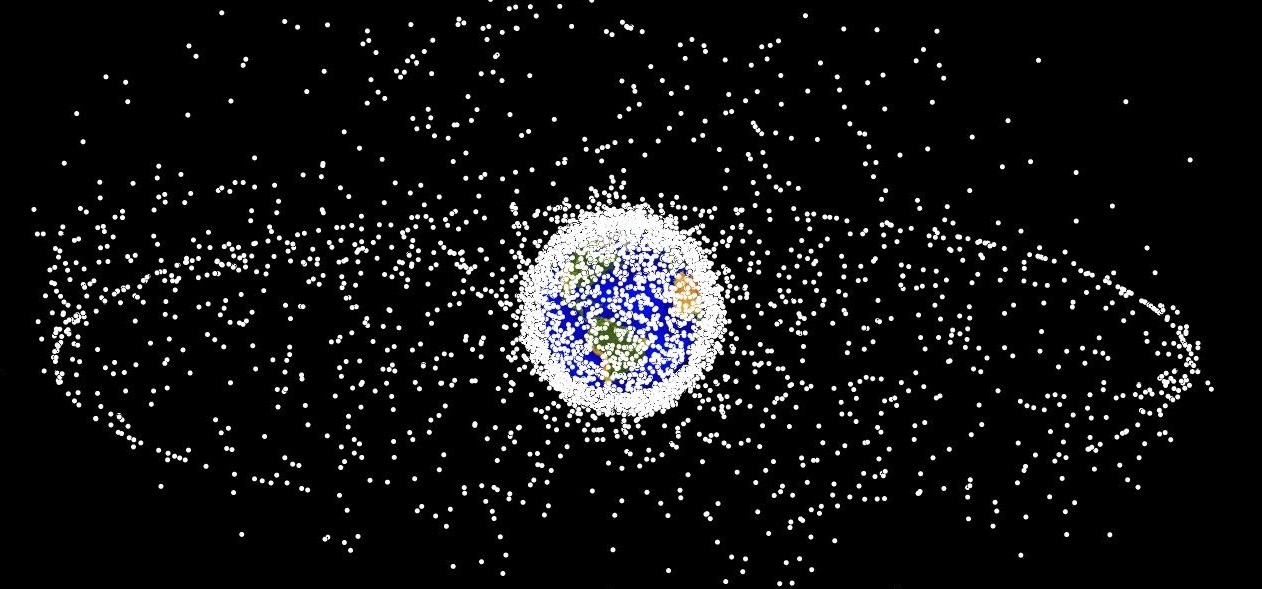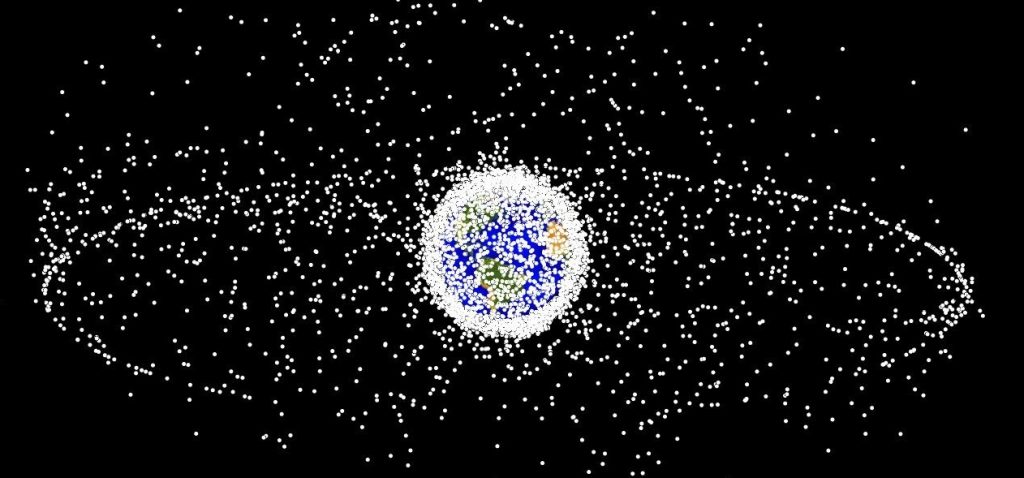Vatican Calls for Rules of the Road in Space

In 2015, the UCC General Synod passed a resolution on Responsible Stewardship of the Outer Space Environment. Through a regular series of articles, the UCC maintains its commitment to addressing the serious threats posed by space debris.
Moriba Jah, a space debris expert at the University of Texas in Austin, thinks we can learn a valuable lesson from the early history of mining in the United Sates. That industry harmed the natural environment and led to the loss of human life because government was slow to regulate its activities. We are going to repeat this history in space, Jah says, unless the international community adopts some rules to foster responsible stewardship of the space environment.
One thing the international community should do right now – in view of the astronomical growth of the commercial satellite industry and the likely prospect of space tourism in low Earth orbit – is create a better traffic management system for spacecraft. Collisions between satellites are still rare, but they are devastating when they occur. In 2009, a functioning U.S. communications satellite collided with an inactive Russian military communications satellite. The crash created over 2000 pieces of metal, foil and plastic larger than a softball that now threaten other spacecraft. The likelihood of such collisions is growing as orbits become more congested.
It was a welcome development last fall, therefore, when Archbishop Bernadito Auza, Apostolic Nuncio and Permanent Observer of the Holy See to the United Nations, urged member states to draft “rules of the road” for space. He said one such rule should require nations, before they launch their space vehicles, to “ensure their orbits do not conflict with existing spacecraft.” Another rule should require launching states to dispose of satellites “in a safe and responsible manner” at the end of their missions. The Vatican would like to see these rules incorporated in an International Code of Conduct for Outer Space Activities.
Unfortunately, the White House has explicitly ruled out international treaties to address the debris problem. Although its recent directive on space traffic management is a step in the right direction, the policy’s reliance on voluntary compliance with guidelines for orbital traffic control and disposal of defunct satellites is likely to be ineffective. Many commercial operators will refuse to follow the guidelines because they add to the cost of missions.
Brother Guy Consolmagno, SJ, who heads the Vatican Observatory, tells the online journal Crux that part of the challenge of developing a legal framework for space conduct is to “ensure that all players in the field are convinced, including private enterprises, that it’s to everyone’s benefit to have rules and to follow them. Otherwise there is no way of enforcing them.” The best thing the Vatican can do now, he says, is serve as a politically disinterested party that “reminds all nations of the universal benefits of following a set expectation for conduct.”
The Vatican has engaged in space diplomacy since the 1960s, when the Second Vatican Council stated that humanity’s drive to master outer space would require the “same redeeming spirit necessary in all human endeavors.” Its overarching purpose has been to promote the peaceful uses of space for the benefit of all humanity. Today, notes journalist Caroline Glatz from the Catholic News Service, Vatican diplomats are applying principles articulated in Pope Francis’ 2015 encyclical, On Care for Our Common Home (Laudato Si’), to all of God’s creation, including outer space.
Rev. Robert Bachelder is a retired UCC minister in Massachusetts and author of the General Synod resolution on responsible stewardship of the outer space environment.
Related News
Joy, Love, and Climate Action: A Church Draws from Ayana Elizabeth Johnson
At First Congregational Church, UCC, in Colorado Springs, CO, our Climate Justice Leadership...
Read MoreAn ally experiences PRIDE in the CLE
Advocacy and Action for Women's and Gender Justice Local events stir thoughts and...
Read MoreVote for Climate Hope Congregation Toolkit
After having witnessed the wonderful Climate Hope art of UCC children and youth, we are now...
Read More

